STAR VIBE images
Test campaigns
We present the first batch of test images taken by STAR telescope over frosty Russia and sun-bathed Australia. These are the results of our second test campaign, which is being carried out immediately after the satellite’s primary systems are operational. When viewing them, it’s worth remembering that these are test images that have been heavily compressed and downsized due to the still limited number and bandwidth of communication sessions with the satellite. It won’t be long before we can download the full-resolution images, but after what has been downloaded, we can already announce the achievement of half of the STAR VIBE mission’s key objectives.
As we look at the images, let’s keep in mind some basic compression characteristics:
◼️ test photos have a resolution of 3 megapixels. The original photos are as high as 12 megapixels,
◼️ the test photos are compressed from a size of 19 megabytes to just 80–120 kilobytes. That’s compression as much as 200 times,
◼️ the test images may be over/under-exposed in places. One of the goals of the mission is to learn how to operate the instrument in orbit. With each imaging campaign, we will take better and better pictures.
Western Europe – 1/03/2023
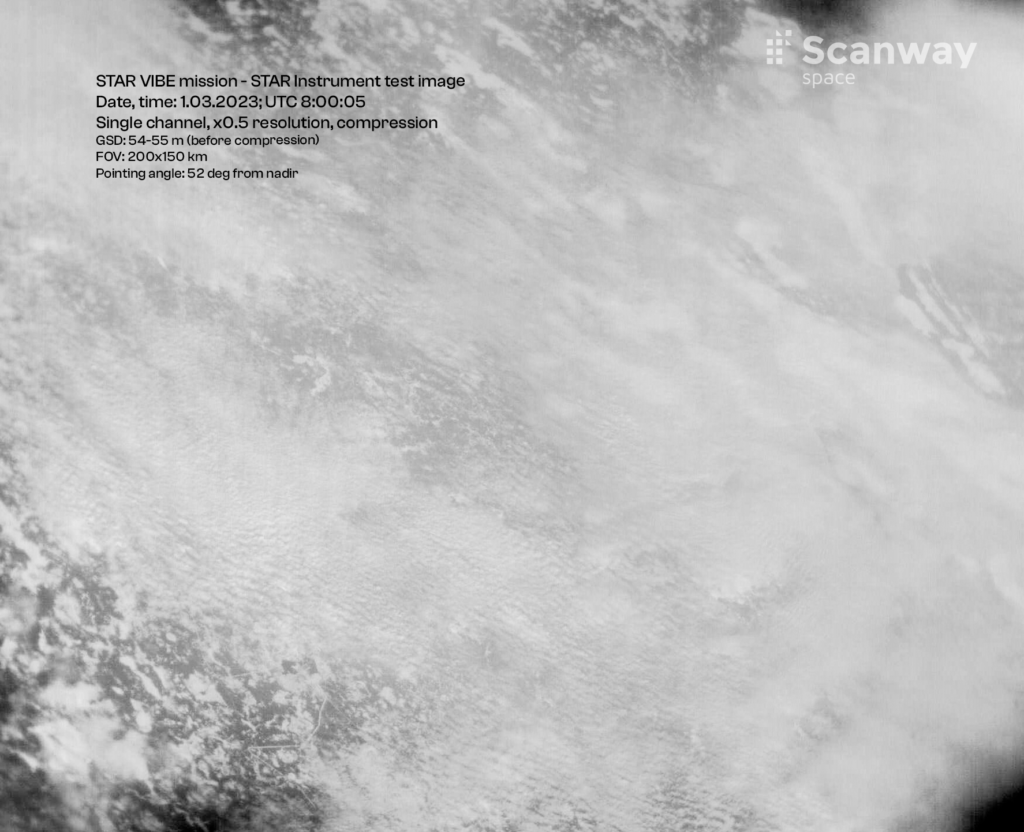
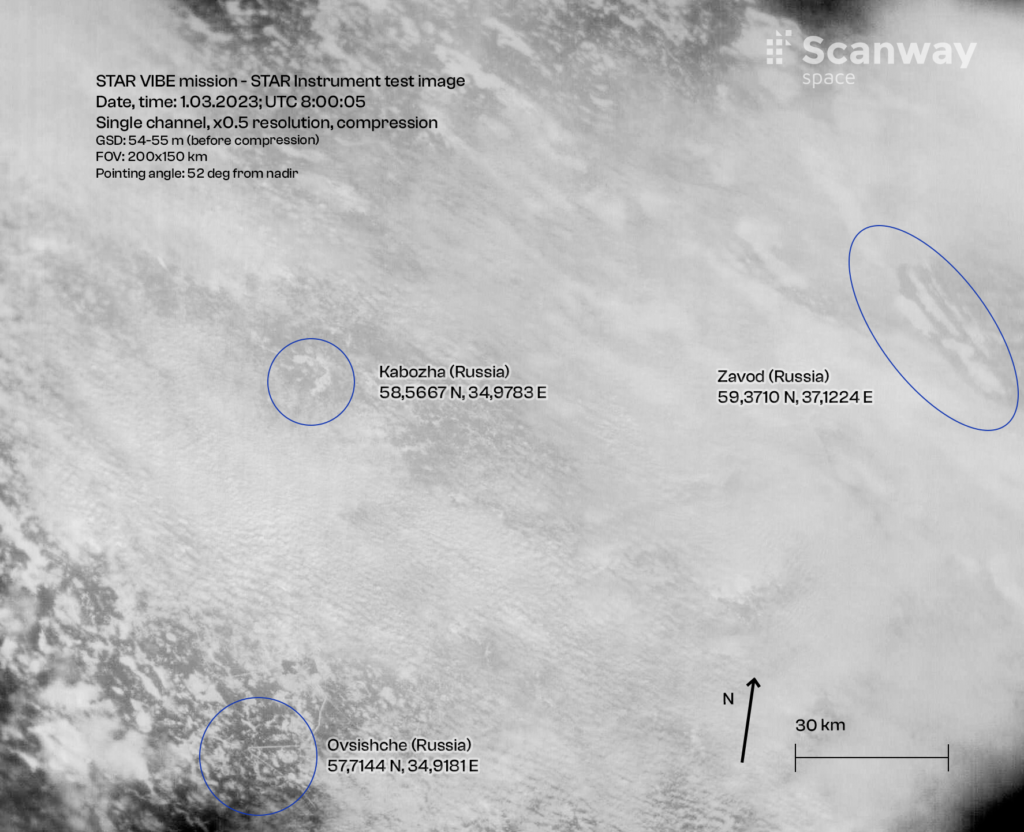
We’ve recorded a short video in which explain how the commissioning of the satellite’s systems has progressed so far, what tests have been conducted, and how much is still needed to make our instruments fully functional. In addition, we discuss one of the dozens of test images, specifically the image taken over eastern Europe – we discuss its quality, what we see, and what the target parameters of the images taken by both instruments will be!
Australia – 11/03/2023
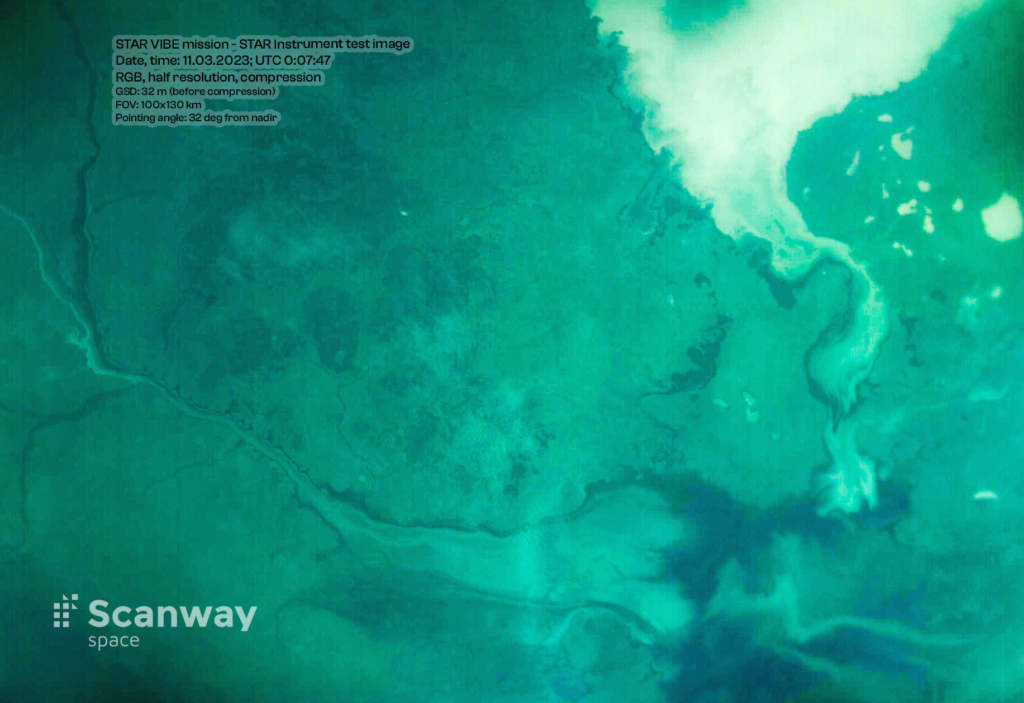
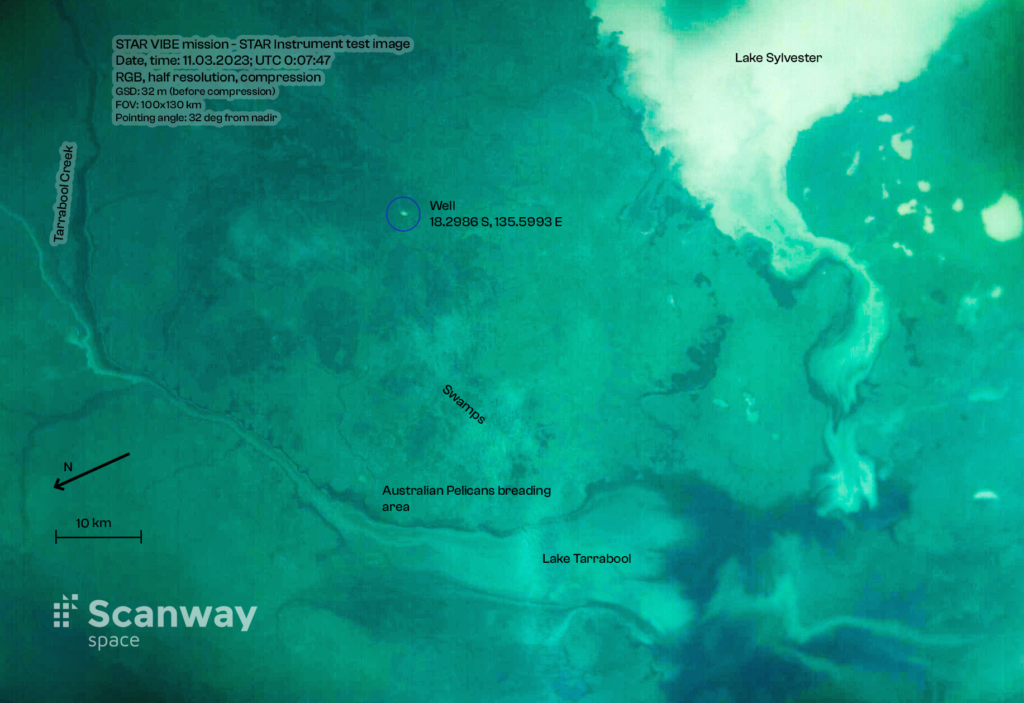
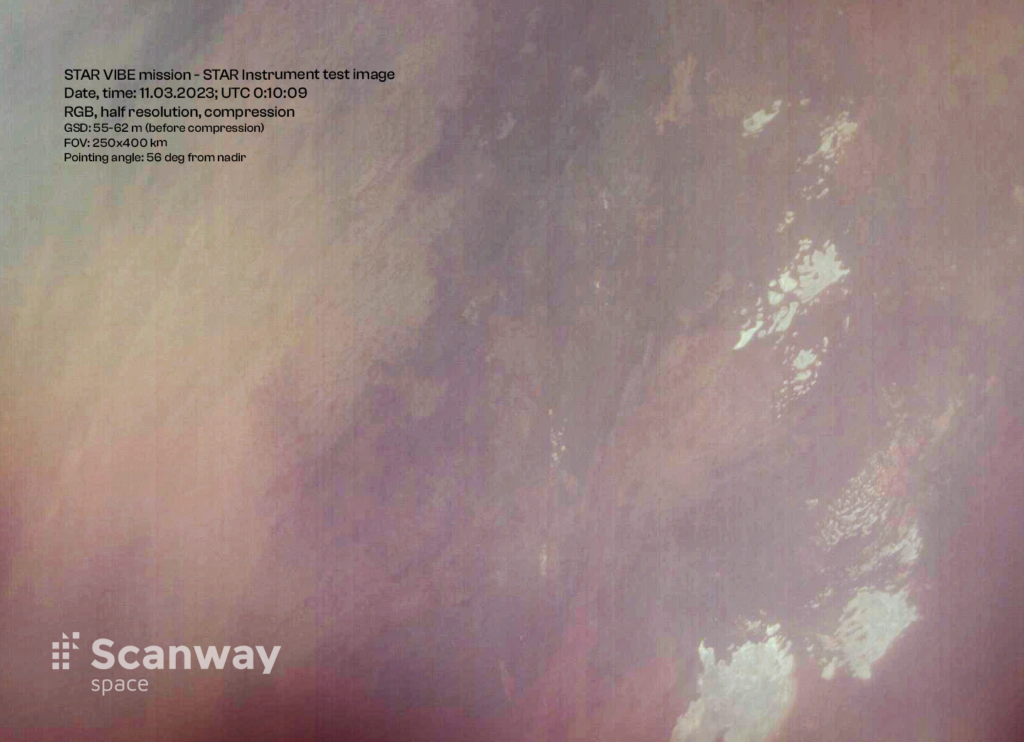
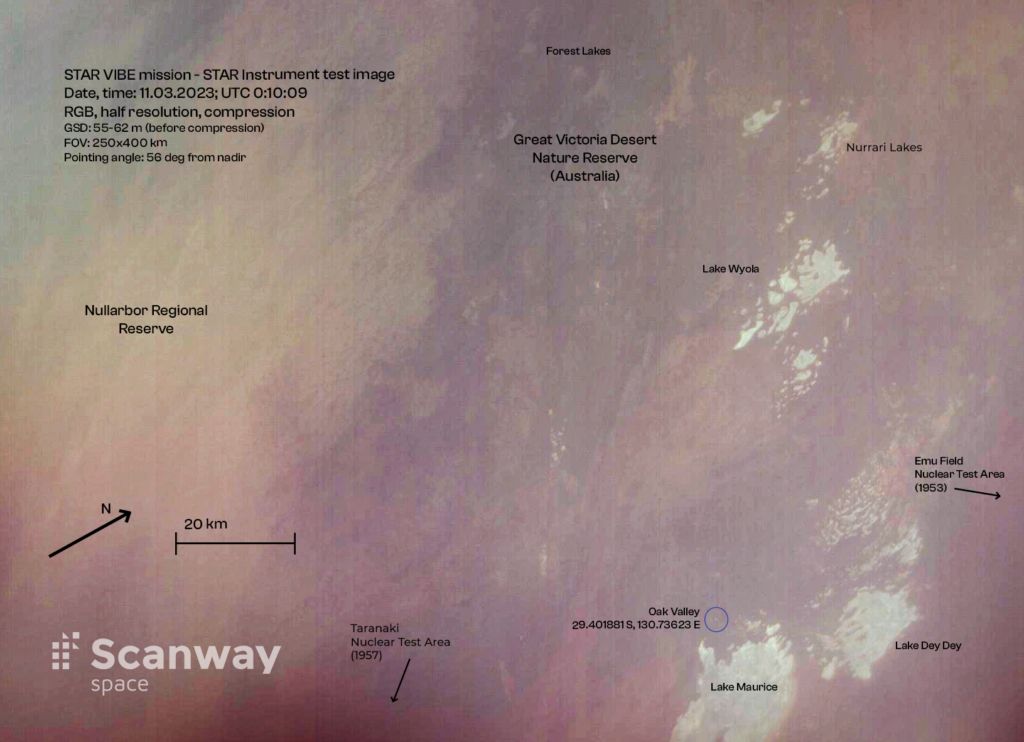
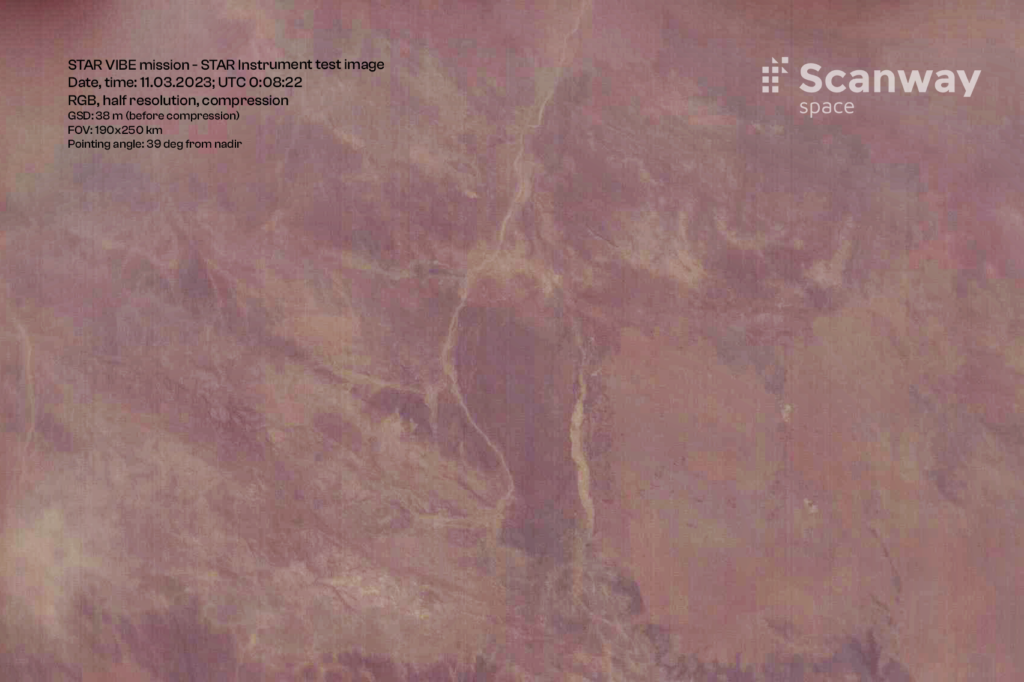
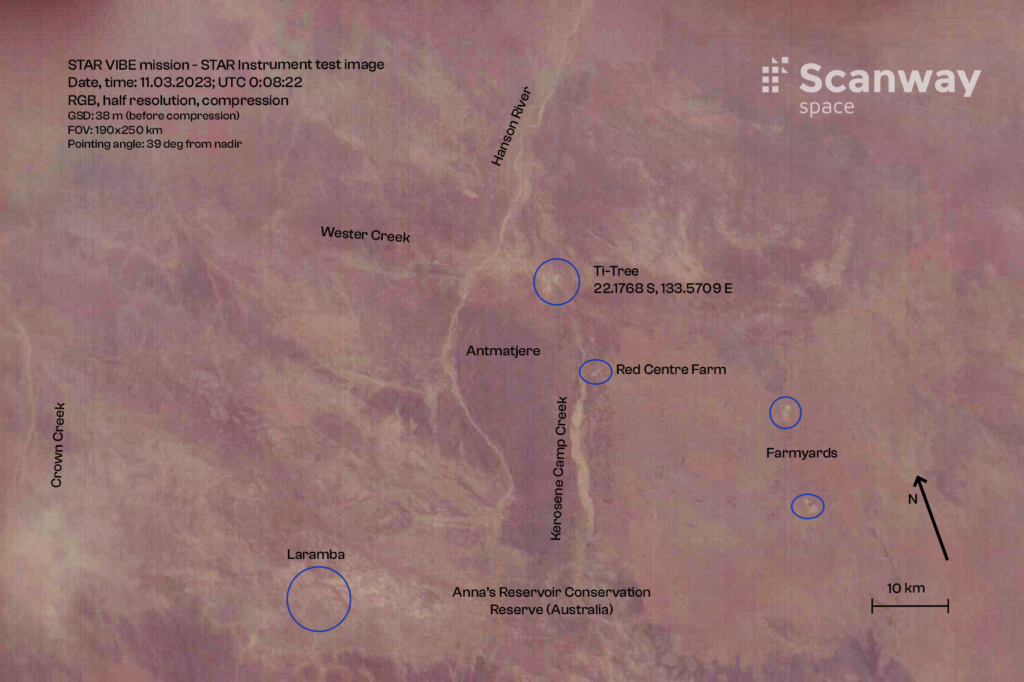
Arafura Sea – 11/03/2023

Iran and Turkmenistan – 6/04/2023
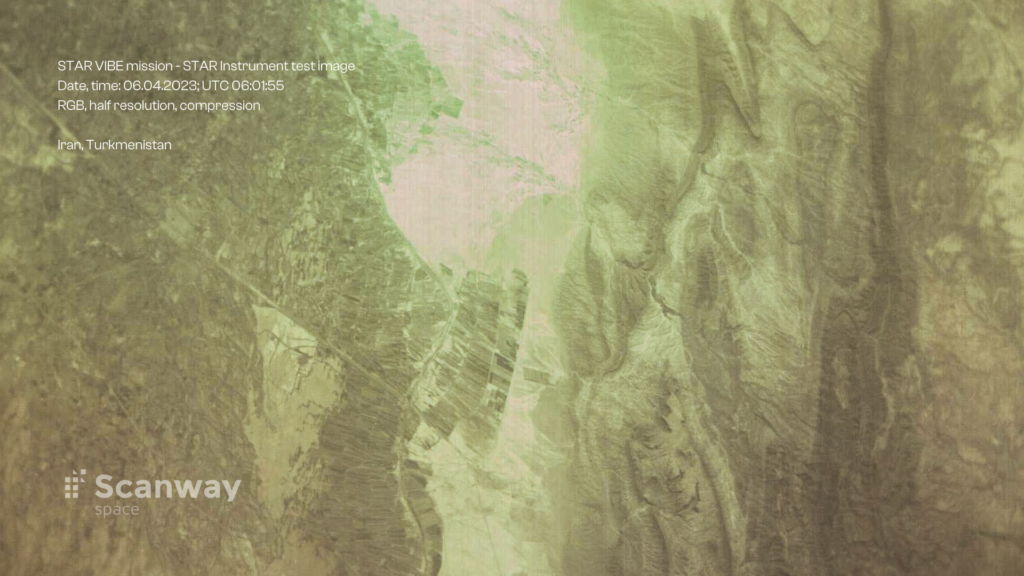
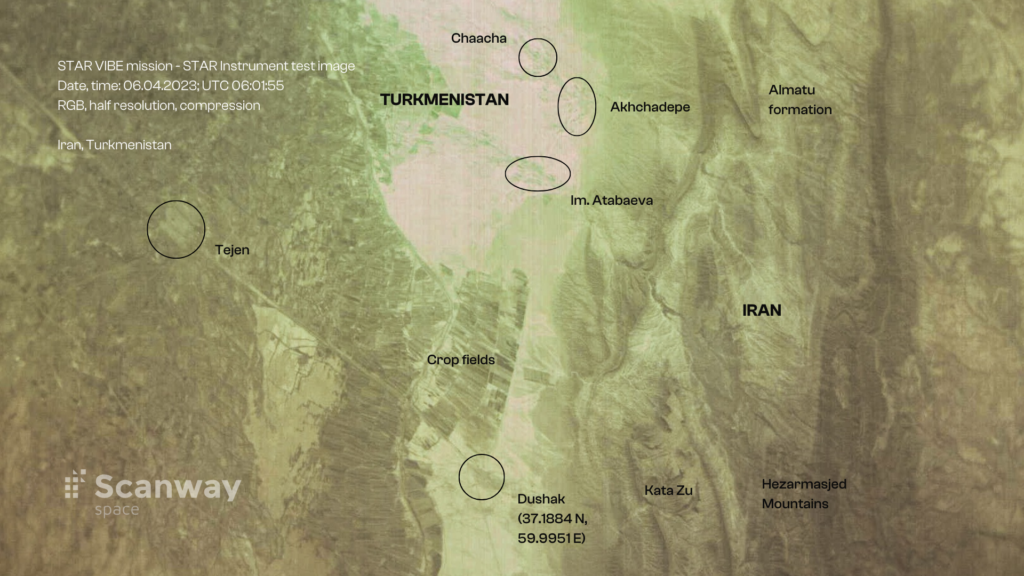
Sicily, Italy – 23/04/2023
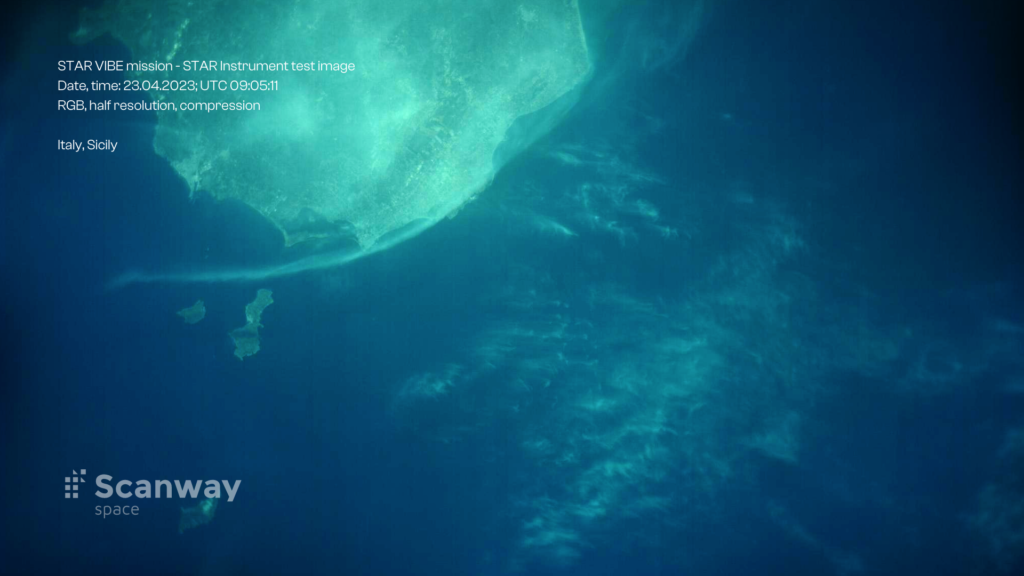
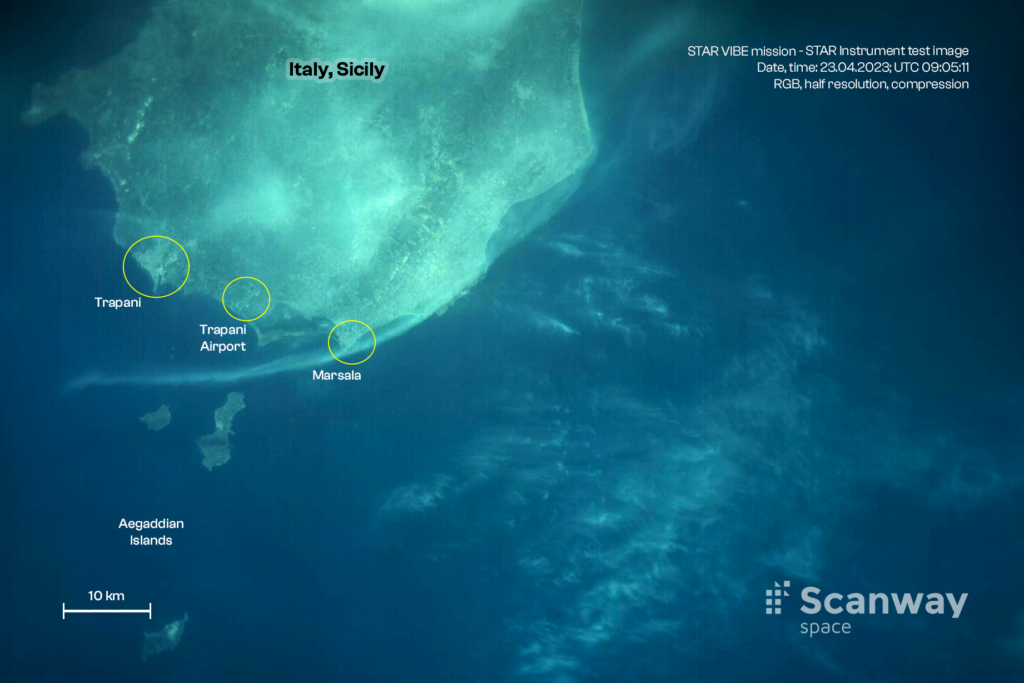
Baltic Sea, Poland – 7/09/2023
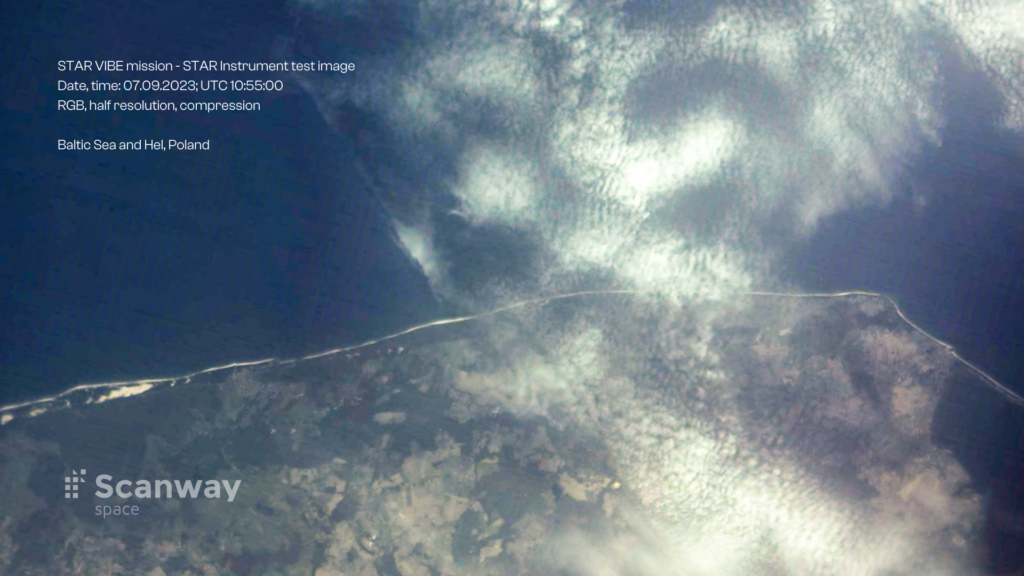
Jordan – 26/10/2023
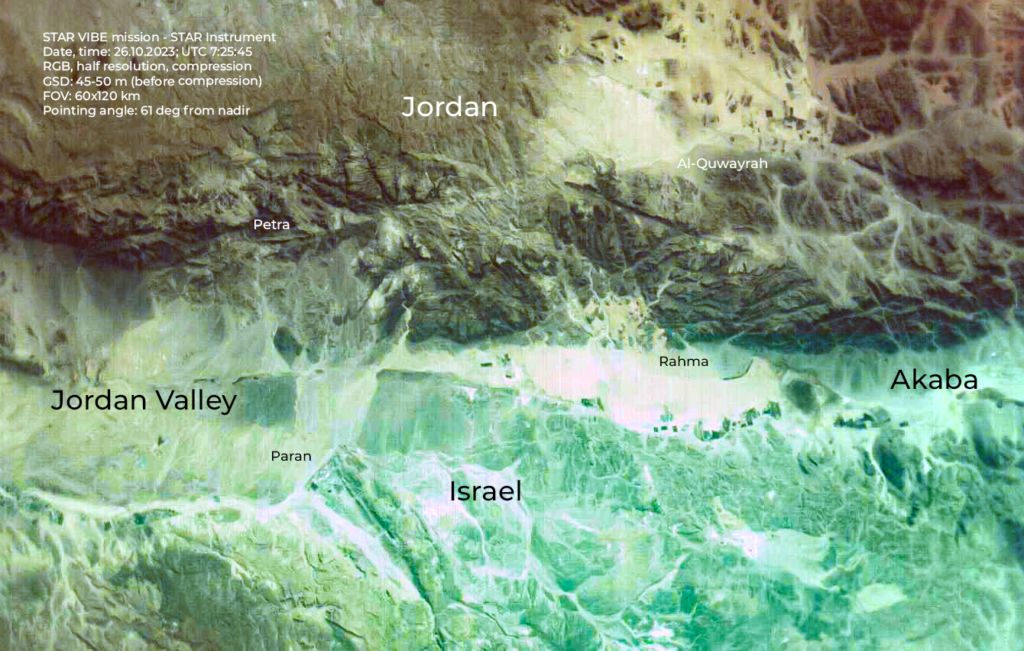
Full-resolution images
During the campaign 07-28/09/2023 we’ve managed to image 29% of Poland’s area.
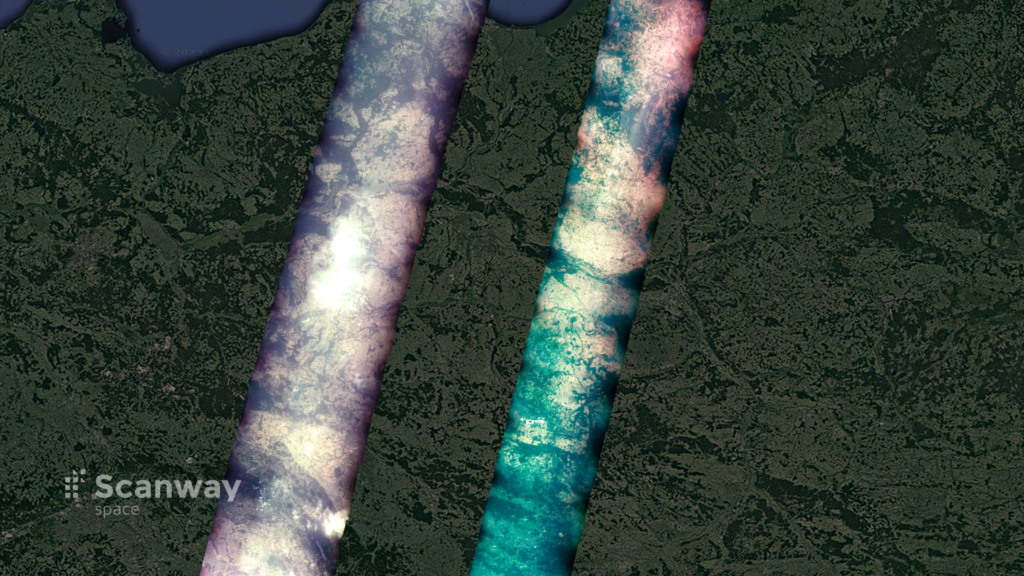
Since 25/09/2023 with the final calibration of the position control system, we are able to target the antennas very accurately, allowing for fast S-band (2.3 GHz) transmission.
Below is the image showing the difference between the resolution we’ve reached by UHF previously and by S-band now!
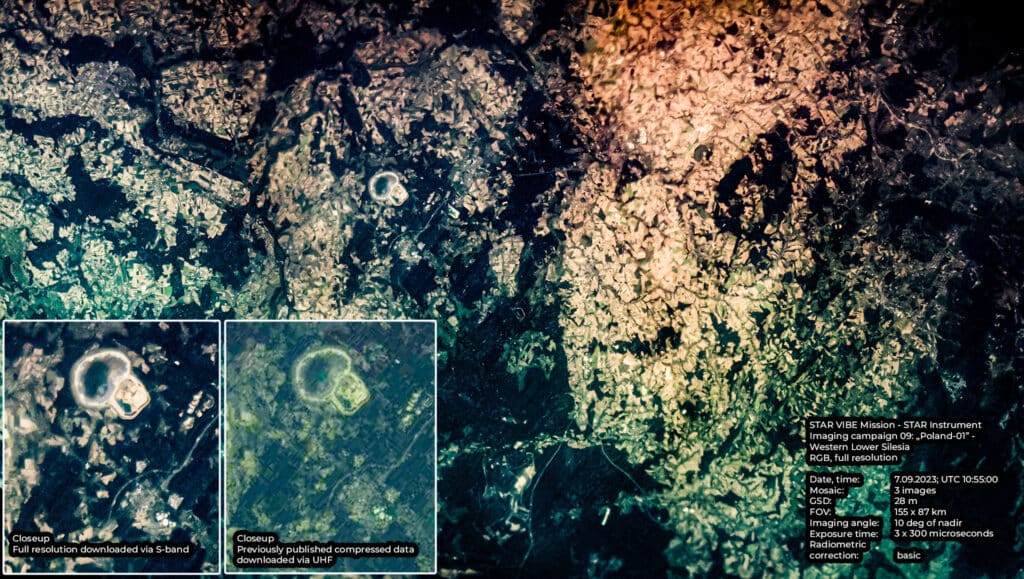
The high-resolution full-color image with 28 m/pixel GSD is below. The photo is a mosaic of three images, which we subjected to basic radiometric correction (color correction).
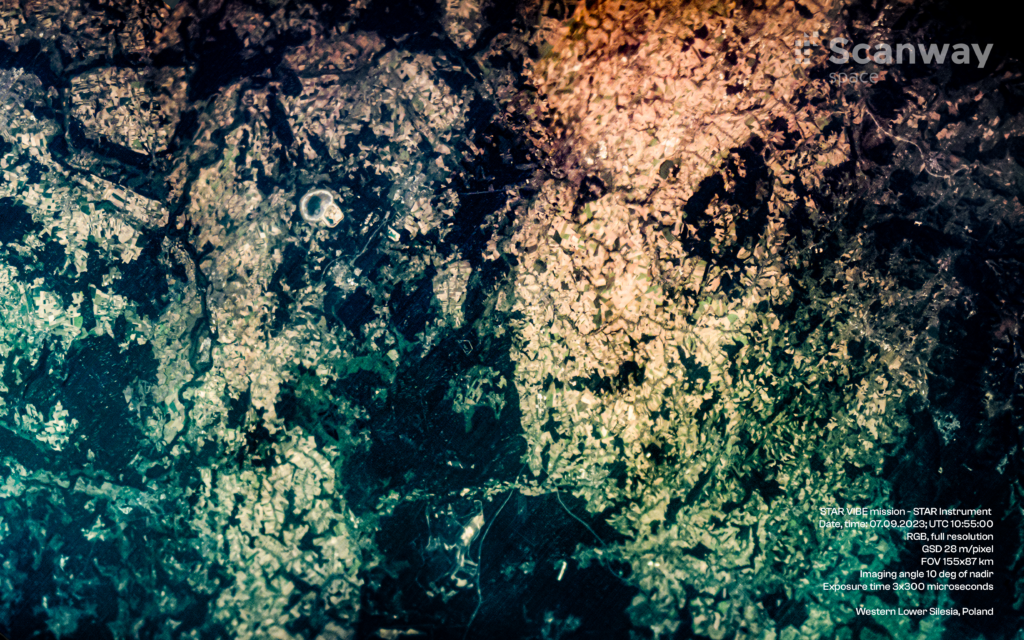
Stay tuned for more images!
If you have any questions or comments regarding images above, please feel free to contact us via [email protected]

